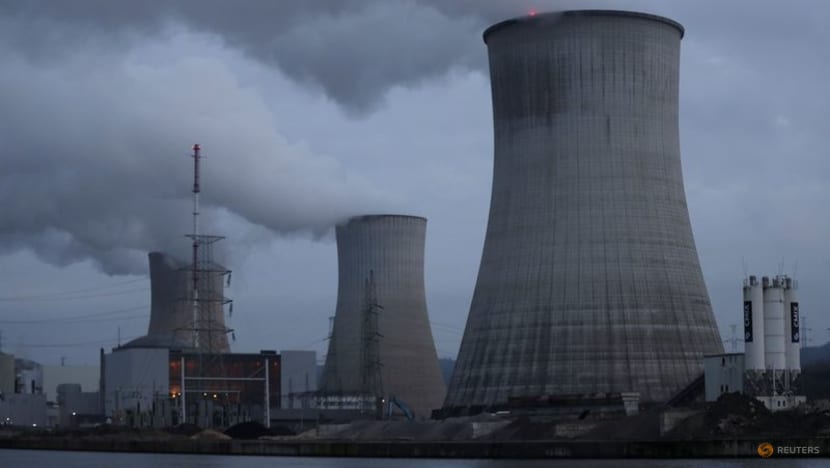Singapore deepening understanding of nuclear energy, but no decision made on deployment: EMA, NEA

General view of the Tihange Nuclear Power Station is seen in Tihange, Belgium, on Dec 23, 2021. (Photo: REUTERS/Johanna Geron)

This audio is generated by an AI tool.
SINGAPORE: While Singapore has not made a decision on nuclear energy, efforts are underway to better understand the technology and its implications, authorities said on Thursday (Mar 21).
Singapore is aiming to achieve net-zero carbon emissions by 2050, but as an “energy-disadvantaged” country, its options for decarbonisation are limited, said a National Environment Agency (NEA) and Energy Market Authority (EMA) spokesperson.
"Any decision to deploy new energies requires consideration and demonstration of its safety, reliability, affordability and environmental sustainability," said the spokesperson.
Currently, about 95 per cent of Singapore’s electricity is generated from natural gas that is imported from countries such as Indonesia and Malaysia.
Deputy Prime Minister Lawrence Wong said last month that while LNG is the cleanest form of fossil fuel, Singapore cannot achieve its zero emissions target by relying solely on natural gas.
The use of nuclear energy was one of the possible scenarios set out by Singapore in its Energy 2050 Committee Report released in 2022, where nuclear was potentially able to supply about 10 per cent of the country’s needs.
However, the use of nuclear energy does have its risks. In March 2011, an earthquake and resulting tsunami caused a meltdown at the Fukushima Daiichi nuclear power plant in Japan, prompting the evacuation of all people living within a 20km radius over fears of radiation contamination.
"Given the technical complexity and ongoing developments in advanced nuclear energy and fusion technologies, there is a need to continue to build capabilities to better understand the safety, security and environmental implications of advanced nuclear energy technologies for Singapore’s context," said the NEA and EMA spokesperson on Friday.
Some of these efforts include supporting research nuclear safety through initiatives like the Nuclear Safety Research and Education Programme, and through academic institutions such as the Singapore Nuclear Research and Safety Initiative.
Singapore is also engaging with international organisations to deepen its understanding of evolving nuclear technologies, facilitate information-sharing, and build capabilities in nuclear safety and emergency preparedness and response.
"In this regard, NEA is an active member of the ASEAN Network of Regulatory Bodies on Atomic Energy (ASEANTOM) that aims to enhance regulatory activities and further strengthen nuclear safety, security and safeguards within the ASEAN Community," said the authorities.
To meet its 2050 net-zero emissions target, Singapore is evolving its energy supply towards natural gas, solar power, electricity imports and low-carbon alternatives, in what has been dubbed as the "four switches".
The "four switches" approach aims to diversify Singapore’s energy sources, increase the sustainability of its power supply, while ensuring energy security and cost-competitiveness, said NEA and EMA.
As part of the low-carbon alternative "switch", Singapore needs to study energy sources such as "hydrogen, deep geothermal systems, biofuels and new forms of nuclear energy that could potentially enable Singapore to decarbonise the power sector in the longer term", they added.


















